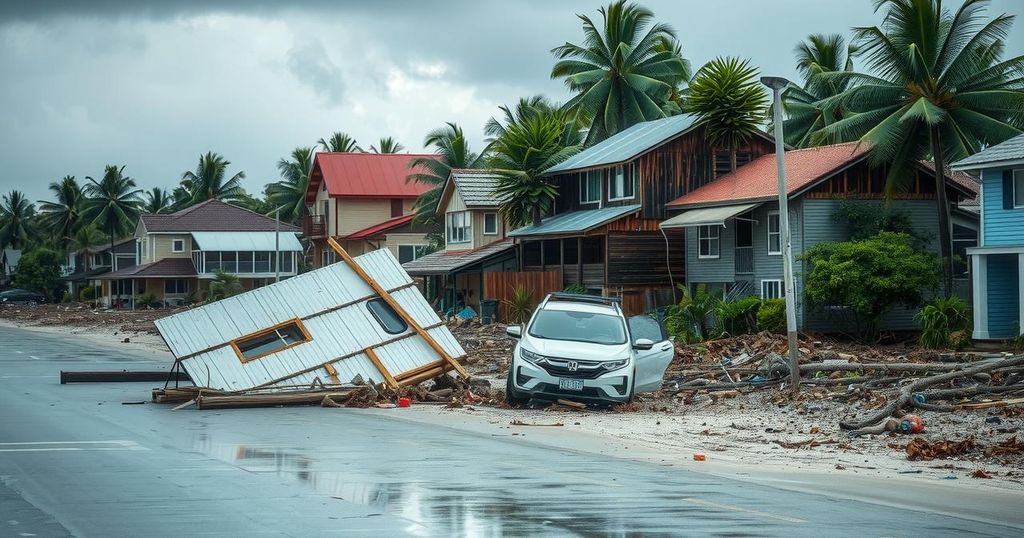Cyclone Chido Devastates Mayotte: The Most Intense Storm in 90 Years

Cyclone Chido has struck Mayotte as the most intense storm in 90 years, resulting in at least 22 deaths and widespread destruction of neighborhoods and infrastructure. The storm’s strength is linked to rising ocean temperatures, underscoring climate change’s growing impact on cyclonic activity in vulnerable regions.
The Indian Ocean archipelago of Mayotte is currently facing devastation in the wake of Cyclone Chido, which has been characterized as the most severe storm to strike this French territory in the past nine decades. The cyclone made landfall on Saturday, rapidly resulting in tragic loss of life, with at least 22 fatalities reported. In addition to the human toll, the storm has wreaked havoc on properties, obliterating entire neighborhoods, severely damaging vital infrastructure, and uprooting numerous trees. The aftermath of Cyclone Chido presents a significant challenge for the local population and government as they grapple with recovery efforts.
Mayotte, located in the Indian Ocean, is a small archipelago that has experienced a notable absence of severe cyclonic activity for many years. The intensification of storms in this region has been attributed to the warming of ocean waters, a phenomenon that is increasingly prevalent due to climate change. As global temperatures continue to rise, the frequency and intensity of cyclones are predicted to increase, putting vulnerable territories like Mayotte at greater risk. Cyclone Chido serves as a stark reminder of the potential catastrophic impacts of these environmental changes.
In conclusion, Cyclone Chido has exposed Mayotte to its most severe cyclone in nearly a century, highlighting the urgent need for disaster preparedness and comprehensive recovery strategies. With at least 22 lives lost and extensive damage inflicted upon the island’s infrastructure, the road to recovery will undoubtedly be a long and challenging process. As climate change continues to influence storm patterns, it is imperative for both local and global communities to address these looming threats proactively.
Original Source: www.washingtonpost.com








